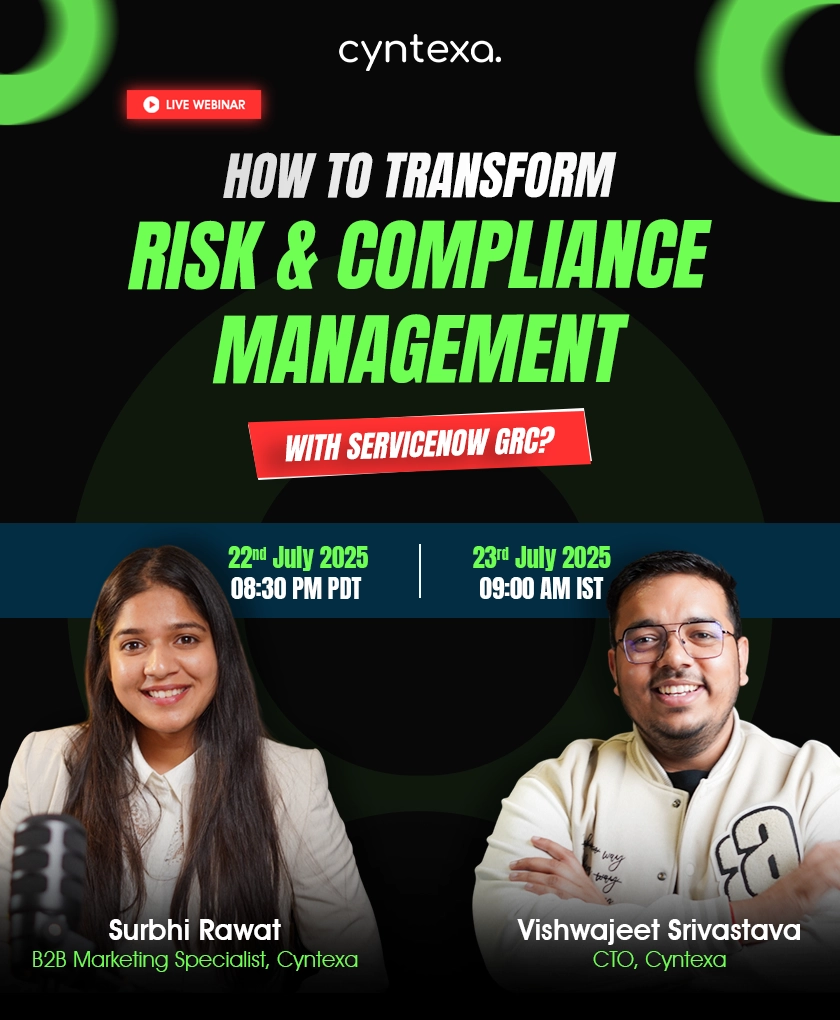The Everything Guide to ServiceNow: Products, Pricing, and Benefits Explained
Table of Contents
Founded in 2003 as an IT service management company, ServiceNow today connects people, functions, and systems across organizations worldwide, empowering 85% of Fortune 500 companies.
ServiceNow is rapidly growing, supporting the growth of organizations of every size in every industry.
Why do enterprises, even Fortune 500 companies, heavily rely on it? What is ServiceNow, how does it work, its offerings, and how much does it cost?
This guide to ServiceNow will delve deep into each question, helping you understand ServiceNow, and why it deserves your attention.
So, let’s get started.
What is ServiceNow?
ServiceNow is a cloud-based enterprise workflow automation platform delivered as Software-as-a-Services (SaaS).
It is a platform that automates the enterprise’s processes from beginning to end like managing IT service requests, customer service management, and even driving project approvals – all on a single, centralized platform.
ServiceNow is like the brain of the organization. It coordinates and manages all the activities, functions, and data across the different parts of the body, such as the IT, HR, finance, customer service, and security departments.
This is what ServiceNow is and why it is used for. Businesses of all sizes can use this platform to manage their digital operations more efficiently and effectively, resulting in cost savings and productivity gains.
How does ServiceNow work?
At a simple level, ServiceNow tracks, organizes and automates service requests and activities across different lines of the business.
This allows the personnel to focus on what counts, rather than laborious manual tasks eating up productivity.
Here’s how it’s done.
Let’s say John at your organization needs a new computer. He logs into the ServiceNow portals (it’s similar to online request forms). He fills the forms with all the information like processor requirements, model, software needs, etc. ServiceNow will automatically route this request to the appropriate IT team. The IT team will be notified about the request, and they can approve it, order the new computer, and track its progress.
John can track the progress of the ticket, and whenever the new computer is, he will be notified to pick it up.
This is how ServiceNow tracks, organizes and automates service requests.
As a whole, ServiceNow transforms the old, manual ways of working into modern digital workflows, so employees can get what they need, and when needed. The ultimate benefit of it is productivity gains, improved service quality, and faster resolution time.
ServiceNow Products
ServiceNow has a range of products tailored to meet the specific needs of businesses. Here we have outlined some of the most commonly used ServiceNow products according to their use case that are helping businesses globally to achieve their desired outcomes.
Solutions to transform digital operations
- IT Service Management (ITSM): An integrated approach for managing and delivering IT services while complying with the business objectives. By following ITIL (IT Infrastructure Library) standards, it assures that the right people get the right services at the right time, resulting in improved service quality.
- IT Operations Management (ITOM): This is a subset of ITSM that controls the optimal operation of all the technology at the company and steps in to fix things when they aren’t. A few of its features include handling network infrastructure, assisting with help desk operations, and administering servers and devices.
- Strategic Portfolio Management (SPM): Previously recognized as IT Business Management (ITBM) assists enterprises in decision-making on which project or tasks (i.e. investments) best line up with their organization’s goals. So, enterprises can optimize their resources like time, money, and people in the best feasible way to achieve goals.
- IT Asset Management (ITAM): Referred to as the library system that keeps track of all the company’s IT assets like software, hardware, and even cloud resources. ITAM ensures that resources are utilized and maintained properly, and are replaced or disposed of when they are no longer required. By doing so, it helps companies to achieve the maximum potential of technology.
- Application Portfolio Management (APM): It helps organizations manage and optimize their software application’s collection. It helps companies understand the usage, performance, and business value. It is therefore easier for companies to find out which application to invest in, which one to retain, and which one to discard.
- Enterprise Asset Management (EAM): It assists companies in governing the full lifecycle of their physical assets from the time of acquisition until disposal. These physical assets could be whatsoever from IT equipment, vehicles, or furniture. It presents transparent data about their usage, supporting companies to make better decisions.
- Clinical Device Management (CDM): It helps healthcare providers manage their medical devices such as MRI, X-ray machines, etc. Providing a granular insight into the device lifecycle and its usage enables predictive maintenance and efficient use.
- ServiceNow Cloud Observability: It is one of the industry-first solutions that enable end-to-end cloud applications observability. It unites metrics, logs, and traces into a single workflow that allows companies to identify and react to changes in cloud-native and monolithic applications.
Solutions that elevate customer experience
- Customer Service Management (CSM): It is a comprehensive tool that assists businesses in managing and improving their customer service. Customer requests and issues are treated more effectively by coordinating tasks among customers, customer service teams, and other relevant teams.
- Field Service Management (FSM): It helps companies deliver hassle-free field service experiences to both employees and customers from one unified solution. FSM ensures that the right field agent with the right skills and tools reaches the right location at the right time.
- Telecommunications Service Management (TSM): A solution purpose-built for the telecommunication industry. From network connectivity to customer service, telecommunication companies can rely on it to ensure all their operations are connected.
- Financial Service Management: A solution tailored for financial institutions like banking, wealth management, and insurance. It connects the entire institution from front, back, and middle to work collectively. With AI-powered capabilities, it can analyze and identify the bottlenecks that can affect your company. FSM also helps companies to ensure compliance with regulatory requirements.
Solutions that enhance employee experience
- HR Service Delivery (HRSD): It is a one-stop shop for all the services needed by an employee. Integrated IT, HR, and workplaces facilitate collaboration, increasing employee satisfaction and improving productivity.
- Workplace Service Delivery (WSD): A platform that helps companies manage and streamline workplace operations. It allows employees to reserve workspaces, report incidents, submit service requests, and more. Workplace managers can manage assets, track contracts, and optimize their usages, all from a single platform.
- Legal Service Delivery (LSD): A digital platform that streamlines workload management for legal teams. It replaces the manual email and spreadsheet process with digital experience making sure that each legal request of employees is handled timely and professionally.
- Supplier Lifecycle Operations (SLO): It functions as a digital assistant for procurement and supplier managers to streamline and automate the management of supplier relationships. From supplier onboarding to tracking compliance, managing contracts, and handling requests – all these can be done from a single workspace. It can also be integrated with third-party sources making it easier to get all the supplier information in one place.
Solutions that improve cybersecurity
- Security Operations (SecOps): A Security Orchestration, Automation, and Response (SOAR) tool built on the Now platform. It automates the prevention and response to cyberattacks, allowing companies to handle their security operations more proactively.
- Operational Technology Management (OTM): It provides the companies with a unified and context-dependent view of all the OT systems allowing them to respond quickly to issues, predictive maintenance, and streamline compliance requirements.
Solutions to manage risk and resilience
- Governance, Risk, and Compliance (GRC): It offers tools and processes to sustain a company’s governance framework, including policies, laws, regulations, and best practices. GRC presents a real-time view of compliance from every area of the business, supporting quick reactions to high-risk areas, business outages, non-compliance, and more.
- Third-Party Risk Management (TPRM): it facilitates companies to monitor and assess the risks brought by third parties. A third party is any supplier who works with the company and has access to sensitive information. TRPM keeps track of compliance with regulations, manages risks, and ascertains that company policies are followed. When an issue is detected, it can be prioritized based on severity and routed to the appropriate team for prompt action.
- ESG Management: It is a platform that helps companies track and manage their Environmental, Social, and Governance (ESG) programs. Providing a comprehensive ESG picture in one place, including material topics, goals, and disclosures.
Hyper automation and low code solutions
- Automation Engine: This platform serves dual benefits. First, it helps companies to connect the different systems they use together. Second, it helps companies to quickly build automation using the declarative interface, with no code required.
- Integration Hub (IH): It helps the companies to integrate ServiceNow with external platforms using common protocols such as (APIs, JDBC, PowerShell, etc. This allows you to visualize the data from third parties to the ServiceNow platform, resulting in a single source of truth. Furthermore, integration Hub can automate the process of exchanging data between ServiceNow and other systems.
- App Engine: It is a platform that allows companies to build custom applications and digital workflows tailored to their business needs. A low-code development environment enables even non-technical persons to build applications with no or minimal code requirements.
Solutions that automate finance and supply chain
- Sourcing and Procurement Operations (SPO): A robust tool that collects and records the procurement requests from different lines of business. Automating the multiple mundane tasks enables the sourcing and procurement teams to focus more on strategic priorities. The real-time analytics capabilities pave the way to better decision-making.
- Accounts Payable Operations (APO): A process automation tool for finance departments enabling them to simplify and coordinate the activities required to pay suppliers accurately. These activities include invoice submission, data entry, matching invoices with purchase orders, and more.
- Supplier Lifecycle Operations (SLO): It helps companies manage the end-to-end relationship with suppliers. From onboarding new suppliers to controlling spending, supplier activities management, and collaboration – SLO facilitates all these from a single platform. So companies can manage and build healthy relationships with their suppliers.
Data security and privacy solutions
- ServiceNow Vault: A comprehensive security solution that helps enterprises to protect sensitive data, security, privacy, and compliance. It offers a suite of premium controls including Platform Encryption, Data Anonymization, Code Signing, Secrets Management, and Log Export Service. These features not only enhance the security posture of an organization but also ensure regulatory compliance
ServiceNow pricing
How much does ServiceNow cost? Is it too expensive? These are the questions a business boils down to while considering ServiceNow.
ServiceNow doesn’t disclose the pricing of its products, making it hard to get the cost estimation. It works on a custom quote model where the following details of businesses are evaluated to estimate ServiceNow pricing;
- Detailed assessment of your business’s unique needs.
- Industry and geographical region
- Business size and revenue
- Product suite, packages, and licenses
Since these factors vary from business to business, the best practice for determining how much ServiceNow costs is connecting with a ServiceNow consulting services provider.
ServiceNow Starter Pack
For organizations just beginning their ServiceNow journey, the platform’s depth and flexibility can feel a bit overwhelming. The ServiceNow Starter Pack offers a streamlined path forward. It helps in delivering pre-configured modules, following ITIL-aligned workflows (IT Infrastructure Library), and essential integrations that reduce implementation time and complexity.
The ServiceNow AI Starter Pack is tailored especially for small to mid-sized enterprises. It includes out-of-the-box support for incident, problem, change, and configuration management, along with ready-made self-service portals and KPI reports. Whether your goal is to improve service delivery, reduce ticket resolution time, or simply gain better visibility into IT operations, the pack aims to empower your team to start strong. For more information regarding this, you can get in touch with a ServiceNow partner.
Why should a business consider ServiceNow?
Knowing ServiceNow products, and their capabilities, you might understand why you should consider ServiceNow, and what benefits are achievable. Here is some additional information that will draw your attention to the benefits of the ServiceNow platform;
1. Ultimate business hub: Everything you need in one place
The ServiceNow product suite spans various business operations from IT service management, IT operations management, HR Service Delivery, Customer Service Management, etc.
All these products serve specific purposes, helping businesses create a consistent and integrated experience across all business functions.
2. Maximizing productivity and creating great experiences
ServiceNow is a robust workflow management platform that allows companies to automate repetitive tasks across different lines of business. So, employees can spend their most strategic work ultimately driving better productivity.
7-Eleven Inc., an American convenience store chain, leveraging the automation capabilities of ServiceNow, reduced the resolution times by 75% and improved the resolution rates by 205%. With the ServiceNow Customer Service Management platform’s automated routing capabilities, the organization ensured that the right agent was working on the right case. As a result, agents can solve issues faster, and customers have a better experience.
This is how ServiceNow is powering modern workplaces to boost their productivity and cultivate better experiences for both customers and employees.
3. Proactively manage risk, security, and cost
ServiceNow uses a centralized repository called “Configuration Management Database (CMDB)” that acts as the single source of truth for the information related to your organization. This offers you complete visibility and infrastructure about your IT assets, their configuration, and the relationship between them, enabling rapid identification and response to issues that might affect business operations.
This information keeps updating in real-time, therefore, you can not only respond faster but also anticipate issues.
ServiceNow is rapidly adopting AI and machine learning to develop self-handling capabilities. It can identify the higher security areas, root causes, or problems, and fix them without human intervention.
Tracking the entire lifecycle of software assets, it recommends the business’s suggestions to optimize their usages resulting in optimized spend.
ServiceNow uses its products internally to proactively manage risk, security, and cost. The outcomes achieved by ServiceNow are certainly noteworthy;
- 58% fewer critical outages
- 25% of issues proactively prevented thanks to AIOps
- 94% employee satisfaction
- 20% reduction in security threat response time.
4. Managing ESG programs
With each turn of the calendar, challenges like the growing climate crisis, higher energy costs, and changing customer demand grow more urgent.
ESG (Environmental, Social, and Governance) programs have become fundamental to successful and environmentally accountable businesses in the future.
ServiceNow offers a comprehensive view of the organization’s ESG programs like material topics, ESG goals, metrics, etc. So companies can understand their ESG programs and plan the future accordingly to ensure ESG compliance. Regular monitoring of ESG programs enables the organization to optimize its ESG programs.
5. Scalability
When it comes to the cloud, scalability is certain. Supporting the growth of your business, the ServiceNow platform can be easily scaled to meet the high computational needs of your growing enterprise.
Furthermore, ServiceNow’s commitment to being on top of cutting-edge technology trends helps your business to stay ahead in its digital transformation.
6. Customizations
Have unique business needs? ServiceNow offers a wide scope of customization opportunities enabling businesses to tailor the platform to fulfill their requirements.
It offers the following customizations;
- Extending existing tables
- Building new applications on the Now Platform to address your unique business needs
- Modifying baseline business rules
- Supports building complex custom integrations
- User interface customizations


The benefits of ServiceNow are a never-ending loop. These were some of the intuitive benefits we have discussed here. To learn more about what benefits ServiceNow can deliver for your business, ServiceNow consulting services are the best option.
Final take
ServiceNow is digitalizing the companies to enable them to deliver the next-gen experiences for customers and employees. Offering tailored solutions for different industries including education, retail, financial, retail, government, and healthcare solving their challenges.
Some of the world’s leading Fortune 500 companies, including Coca-Cola, Goldman Sachs Group, JP Morgan Chase, Microsoft, etc., use ServiceNow. ServiceNow is also being used by some of the world’s small and mid-sized businesses such as SEO Inc., The Morning Bulletin, HTS Inc. Consultants, and more.
This platform is tailored to meet the needs of all sizes of businesses across all industries.
Cyntexa is a ServiceNow consulting firm helping businesses navigate the ServiceNow landscape to realize the benefits that drive success. Let’s schedule an obligation-free consulting session with us, and find a way to build next-gen digital experience.
Don’t Worry, We Got You Covered!
Get The Expert curated eGuide straight to your inbox and get going with the Salesforce Excellence.
AUTHOR
Vishwajeet Srivastava
Salesforce Data Cloud, AI Products, ServiceNow, Product Engineering
Co-founder and CTO at Cyntexa also known as “VJ”. With 10+ years of experience and 22+ Salesforce certifications, he’s a seasoned expert in Salesforce Data Cloud & AI Products, Product Engineering, AWS, Google Cloud Platform, ServiceNow, and Managed Services. Known for blending strategic thinking with hands-on expertise, VJ is passionate about building scalable solutions that drive innovation, operational efficiency, and enterprise-wide transformation.


Cyntexa.
Join Our Newsletter. Get Your Daily Dose Of Search Know-How









